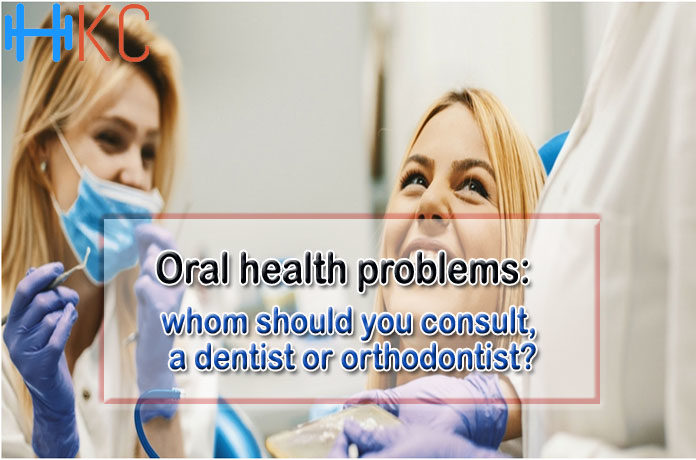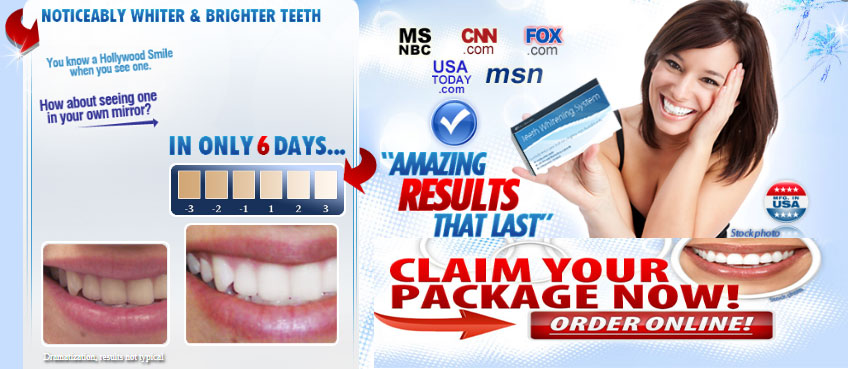Have delicious candies and sugary treats created the fear of toothache in your mind? Do you always think twice about your teeth sensitivity before having an ice cream? Cavities and oral diseases are relatively common among American children and adults. Sometimes, their oral hygiene is to blame, but at other times they are a disadvantage because they don’t have the right expert to consult.
Whenever we have faced any issue with our teeth or gums, people have asked us to visit the dentist. Dentistry is the science that deals with the physiology of nerves, teeth, gum, and jaw. So, whom do you go to when you have crooked teeth? Who takes care of the unsightly gaps between teeth? Do you book a general dentist’s appointment for similar corrective treatment and procedures?
Orthodontist vs. Dentist: who are they?
Only a few people know about orthodontists. Orthodontics is a specialty that only deals with occlusion, straightness of teeth and correcting bites. The same way, you would not want your primary care physician to perform your appendicitis or gall bladder surgery; you would not want your general dentist to perform corrective operations on your gums and teeth. Orthodontists not only study dental science, but they specialize in corrective surgeries that dentists usually do not perform. A dentist can perform root canals and other procedures like placing sealants, teeth whitening and placing crowns, but they typically refer patients in need of corrective care to the orthodontists.
Orthodontists only focus on a corrective procedure that improves overall oral health. He or she has the complete training and expertise to treat crooked teeth, misaligned jaws and crowded teeth. These specialists can also provide their patients with the right braces, retainers, headgear or Invisalign aligners as per their necessity. Some of the experienced orthodontists have the expertise to correct temporomandibular disorders, which general dentists cannot.
On the other hand, if you are suffering from oral health problems including bad breath, loose teeth, and highly sensitive teeth and bleeding gums, you should always visit a dentist first. In case, these are results of misalignment, crowding or crooked teeth, then the dentist will eventually refer you to a specialist. Hence, if you have cavity or tartar buildup, you need a dental surgeon.
When do people usually visit a dentist?
Now, diagnosing a cavity, plaque or tartar buildup by an ordinary person can be impossible. So, when the symptoms of the same arise, you should always consult your dentist first. Here are some of the signs that should urge you to book an appointment with your local dental clinic –
- Pain in your teeth – the pain usually appears without apparent cause or spontaneous pain
- Sensitivity in your teeth
- Visible pits in your teeth
- Brown or black stains on the surface of your tooth or teeth
- Pain while biting, especially sweets and cold food
- Sharp shooting pain while eating or drinking something cold or hot and sweet
A cavity is a result of plaque buildup. Therefore, it is essential to know if you have a plaque in your mouth. It develops due to the bacterial development in our mouths. These bacteria can multiply and form colonies right where the teeth contact the gum. The bacteria survive from the nutrients in our food. Neglecting regular brushing and flossing is usually the root cause of plaque development.
When plaque hardens to tartar, it threatens the integrity of the teeth and gums. The resulting hard substance at the bases of the teeth can result in gingivitis and periodontal disease. The severe outcome of these diseases includes excessive blood loss from the gums and tooth loss.
How can your dentist help you maintain proper dental health?
Your dentist can prescribe specialized teeth and gum care medication along with specialized toothpaste, mouth wash and more. Apart from that, he or she can educate you about proper dental care and hygiene. Here are some points of advice you can expect from your dentist –
- Brush at least twice per day. Do not ignore brushing correctly before bed.
- Brushing properly includes the correct brushing style.
- Floss regularly, especially after a meal of sugary treats. Always floss before bed.
- Only brushing is not enough at times. Special mouthwashes can pull out small particles of food stuck between teeth.
- Limit all kinds of starchy food and sugary snacks before bedtime – brush after having sticky meals.
- Visit the dentist after every six months and opt for professional cleaning if you already have significant plaque built up.
Following these points dedicatedly can help you fight dental decay. These points apply to all ages irrespective of their lifestyle and food choices.
How can orthodontists help you improve your oral health?
Did you know? Misaligned or crooked teeth are always at a higher risk of undergoing plaque development and dental decay. Misaligned molars and premolars often experience higher incidences of dental decay as compared to straight molars that provide proper bristle access during brushing. That is the primary reason everyone needs to visit an orthodontist at least once. Children, especially those between six and twelve years of age should visit an expert orthodontist to prevent the onset of certain dental disorders. It is often easier to avoid certain dental diseases altogether than treat them.
It is essential for everyone to understand that overcrowding of teeth is not just an aesthetic problem. Correction of teeth position is not a luxury. When there is overcrowding, it becomes impossible to floss or brush correctly. Food particle that is hiding between overcrowded teeth attracts easy plaque development. It makes them more prone to gingivitis and periodontitis.
Most orthodontist visits are simply preventive, especially for children. However, adults should also visit an expert, if they have never considered how the alignment of their teeth and jaw can affect their dental health. If you want to enjoy the gift of healthy gum and teeth for the rest of your life, you should consider booking an orthodontist’s appointment in between visiting your dentist.
























